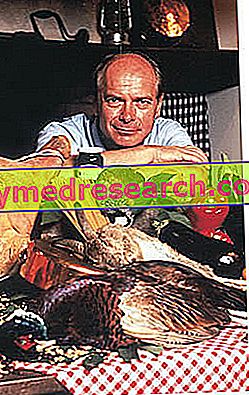Property
Pumpkin seeds ( Cucurbita pepo L.) have a long and established popular tradition against intestinal worms, nocturnal enuresis of children and prostate diseases.

Active Principles - How It Works
Pumpkin seeds contain an amino acid, the cucurbitin, which appears to be responsible for the anthelmintic effect. Carotenoids and zinc (both useful for prostate health) also abound, manganese, magnesium, phosphorus and iron, although the main constituent still remains oleic acid (24-38%), linoleic (43-56 %), tocopherols and carotenoids (lutein and β-carotene).
It has long been known that courgette and pumpkin seeds contain betasterols structurally similar to androgens and estrogens. These substances have proven to be useful for lowering cholesterol levels and improving the symptoms of prostatic hypertrophy, an effect that appears to be partly related to the ability to inhibit the conversion of testosterone into dihydrotestosterone, and partly to the obstacle offered to the link between androgen receptors and dihydrotestorone. The latter substance is a hormone derived from testosterone by the enzyme 5-alpha reductase, which is involved - among other things - in the hyperproliferation of prostate cells. The extract of serenoa repens represents a further phytotherapeutic remedy useful in the treatment of prostatic hypertrophy; in the human body it acts as a chemical inhibitor of the enzyme 5-alpha-reductase, similar to finasteride and dutasteride, but immune to side effects such as the increased incidence of erectile dysfunction and the artificial decrease in PSA levels.
Mode of use
We recommend taking 10 g / day of whole seeds (unsalted) or ground, or equivalent preparations (extract 500 mg / day).
Contraindications and side effects
Not reported.Drug interactions
Not reported.



